Ugandan court rules harsh anti-gay law is constitutional
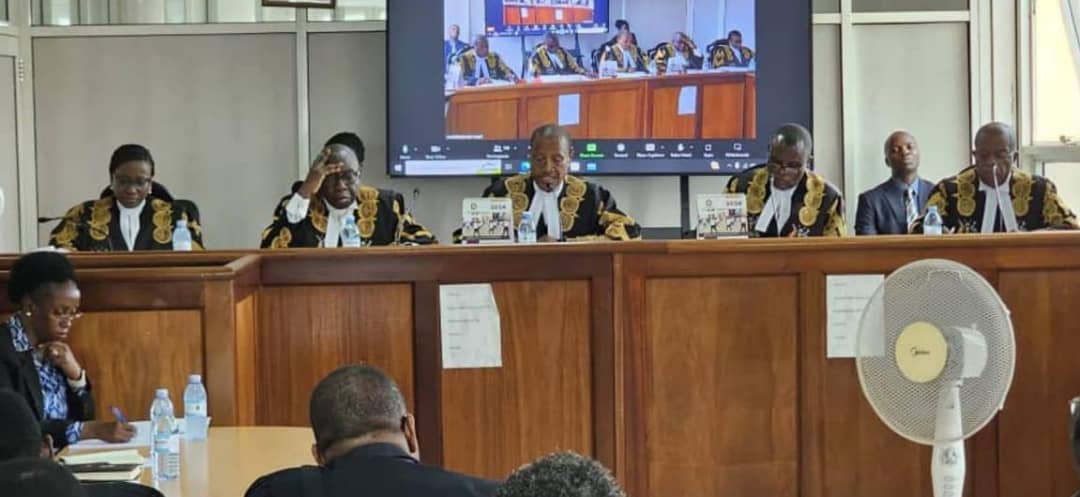
The Constitutional Court has ruled that the Anti-Homosexuality Act 2023 is legal and will be upheld, save for four issues.
The ruling came following a petition by a group of activists who wanted the law trashed.
However court rules that only four sections in the law were illegal and should be repealed.
Below are the details of the ruling:
HE CONSTITUTIONAL COURT OF UGANDA PRONOUNCES ITSELF ON THE ANTI-HOMOSEXUALITY ACT, 2023 OF UGANDA
The Constitutional Court of Uganda has nullified Sections 3(2)(c), 9, 11(2)(d) and 14 of the Anti-Homosexuality Act, 2023 for contravening the Constitution of Uganda, 1995.
This was in the unanimous judgment delivered today, the 3rd of April 2024, by the panel of five justices of the Constitutional Court led by the Deputy Chief Justice in Consolidated Constitutional Petition Nos. 14, 15, 16 & 85 of 2023 Hon. Fox Oywelowo Odoi & 21 others Vs Attorney General & 3 Others.
The nullified Sections had criminalised the letting of premises for use for homosexual purposes, the failure by anyone to report acts of homosexuality to the Police for appropriate action, and the engagement in acts of homosexuality by anyone which results into the other person contracting a terminal illness.
Background
In 2023, the Parliament of Uganda passed the Anti-Homosexuality Act following the public outcry, social and broadcast media discussions and homosexuality victims painful and gruelling stories of children and families that were dying in silence from the psychological trauma of forced recruitment of children into homosexual acts. The Act criminalised homosexuality, its recognition, promotion, financing and normalization.
As soon as the President of Uganda assented to the Anti-Homosexuality law on the 26th of May 2023, four Constitutional Petitions were filed in the Constitutional Court by a total of 22 private citizens and human rights activists challenging virtually all the seventeen sections of the Anti-Homosexuality Act for their alleged contravention of human rights and freedoms that are guaranteed under the Uganda Constitution, and international human rights instruments to which Uganda is a party.
The Petitions were opposed by the Attorney General of Uganda, Pastor Martin Sempa, Eng. Stephen Langa and the Family Life Network Limited. Court also did benefit from an amicus brief filed by the Secretariat of the Joint United Nations Programme on HIV/ AIDS (UNAIDS).
In its Judgment, the Constitutional Court upheld the constitutionality of the Anti-Homosexuality Act save the four provisions already mentioned above.
Basis for the court decision
In coming to its decision, the Constitutional Court considered the following:
The legislations and judicial decisions from sister jurisdictions that have decriminalised consensual homosexuality between adults in private space.
The absence of consensus at the global level regarding non-discrimination based sexual orientation, gender identity, gender expression and sex characteristics (SOGIESC). This is reflected in the fact that to date non-discrimination on the basis of the SOGIESC variables has not explicitly found its way into international human rights treaties. Instead, it has been vetoed by a bloc of resistant (UN) member states that has prevented the adoption of a binding declaration or similar instrument to strengthen protections for LGBTI human rights.
The conflict in international human rights law between upholding a universal understanding of human rights and respecting the diversity and freedom of human cultures, with no one culture entirely diminishing the dignities of the other.
The conflict between individuals right to self-determination, self-perception and bodily autonomy, on the one hand; and the communal or societal right to social, political and cultural self-determination, calling for a delicate balance between individual autonomy and communal interests.
The recent developments in the human rights jurisprudence including the decision of the US Supreme Court in Dobbs v Jackson Womens Health Organisation, No. 19-1392, 597 U.S. 215 (2022), where the Court considered the nations history and traditions, as well as the dictates of democracy and rule of law, to over-rule the broader right to individual autonomy.
The uniqueness of Ugandas Constitution which obliges the courts of law to take into account the countrys socio-cultural norms, values and aspirations when resolving any disputes before them.
The Anti-Homosexuality Act being, in general, a reflection of the socio-cultural realities of the Ugandan society, and was passed by an overwhelming majority of the democratically elected representatives of the Ugandan citizens.
Dated: 03.04.2024













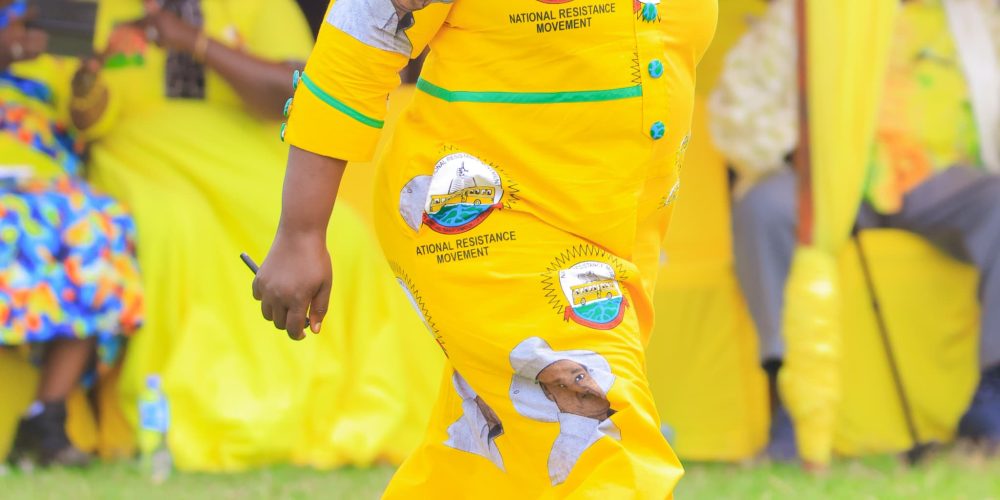
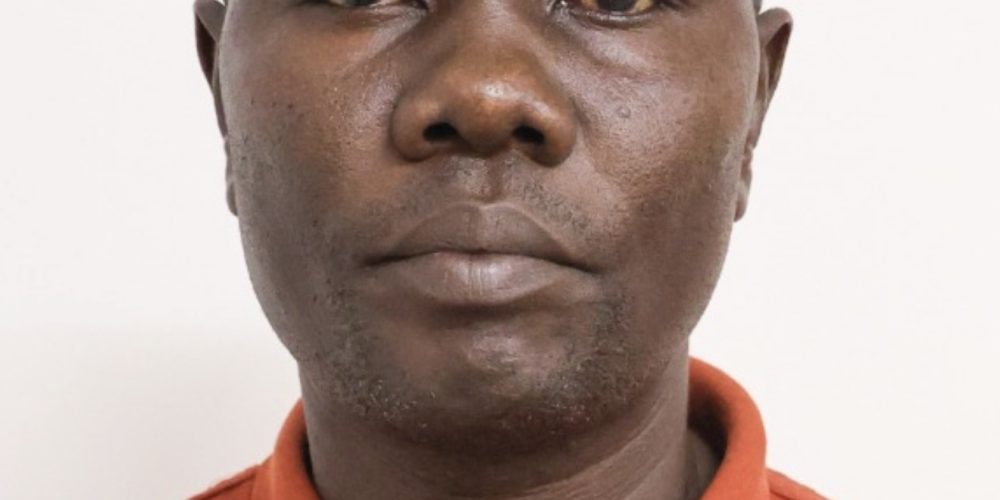



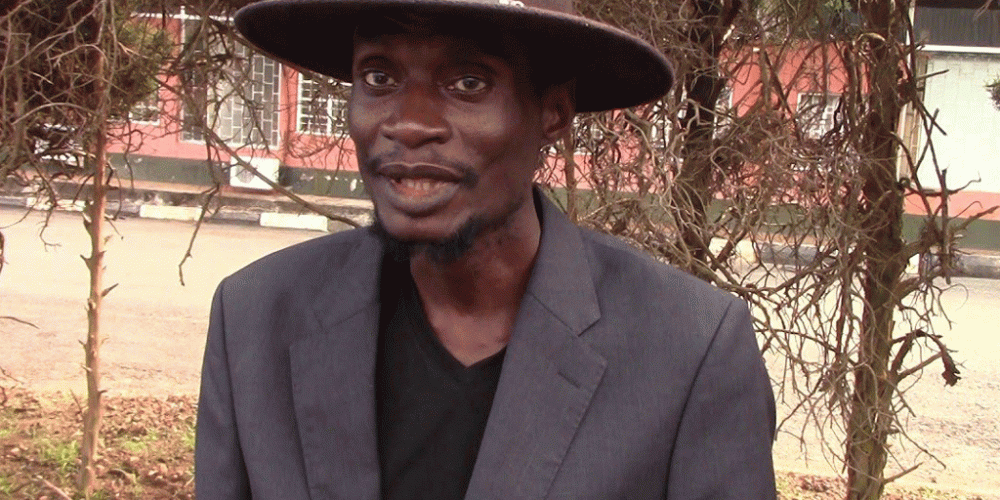
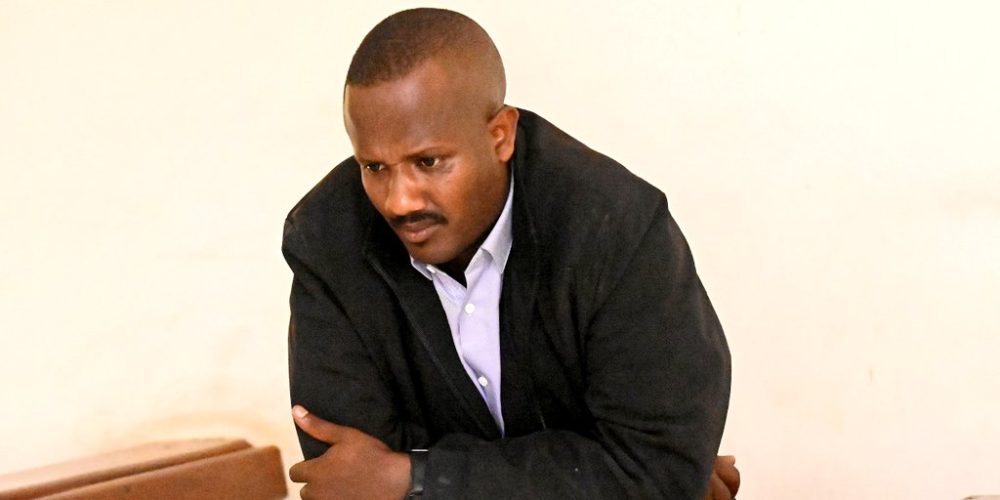

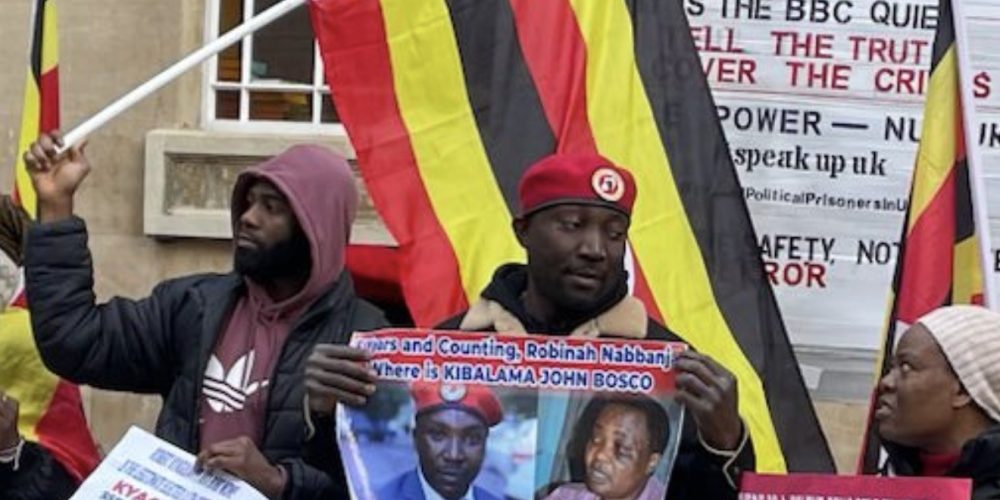
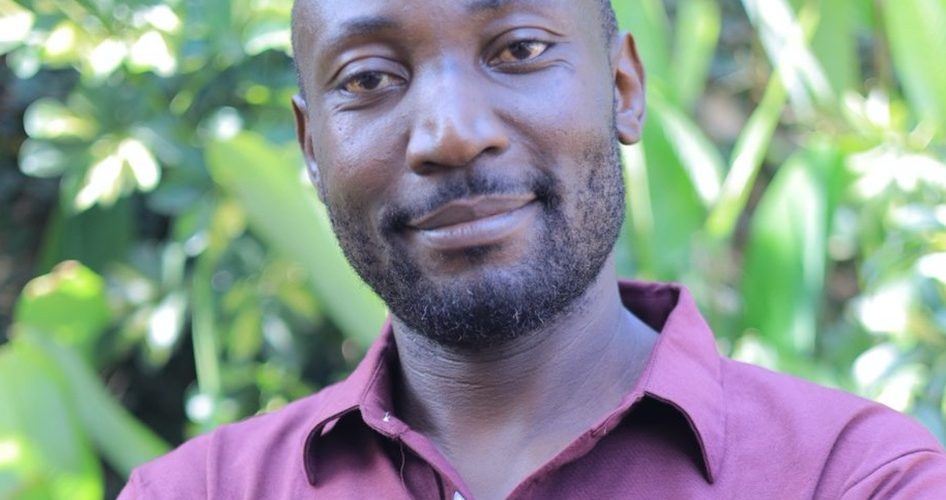

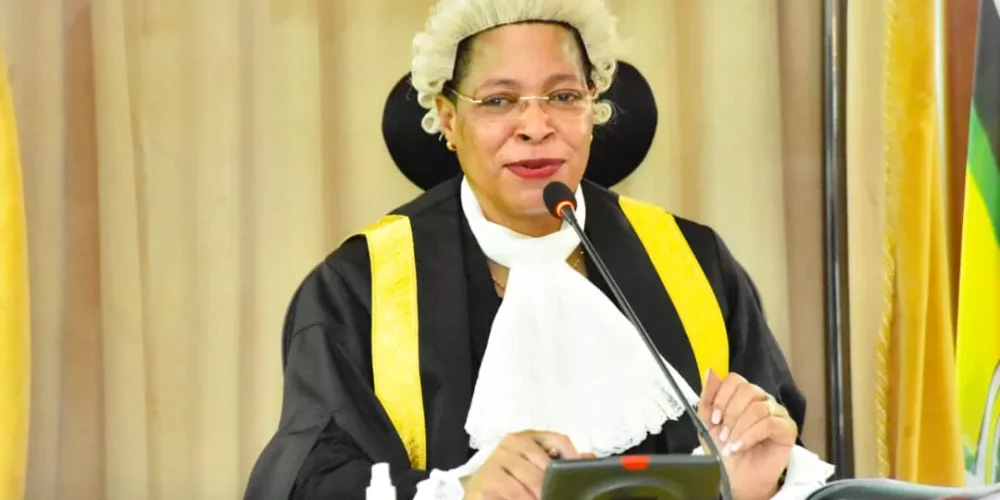

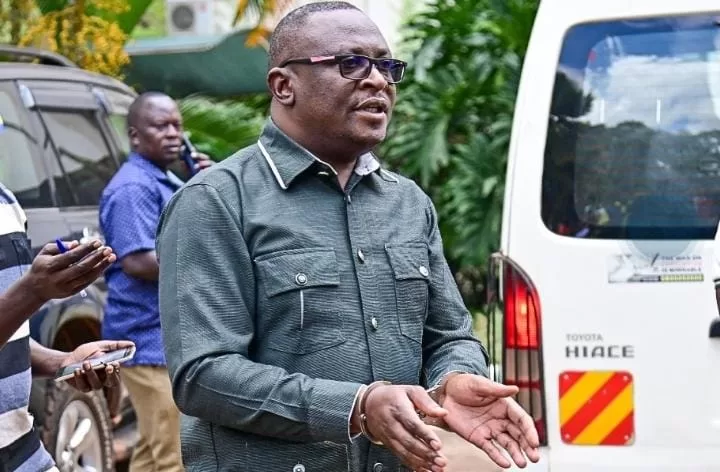

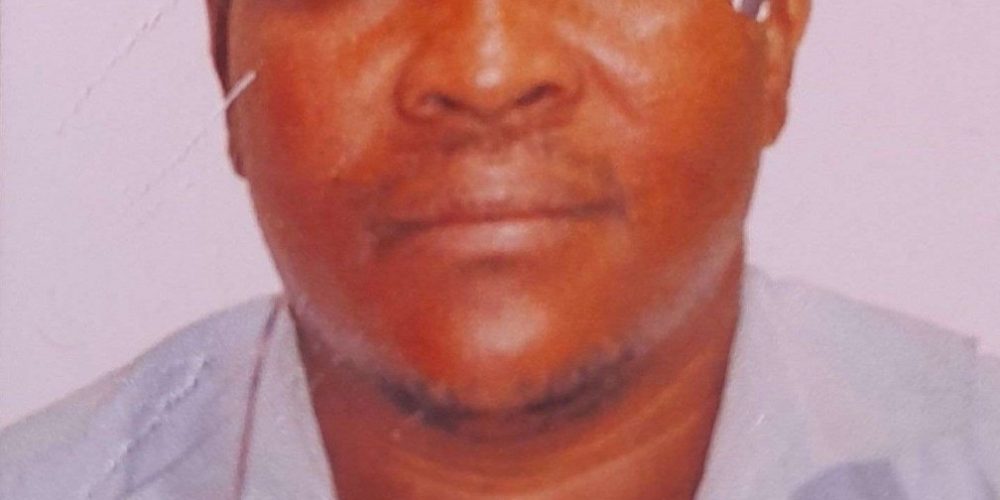
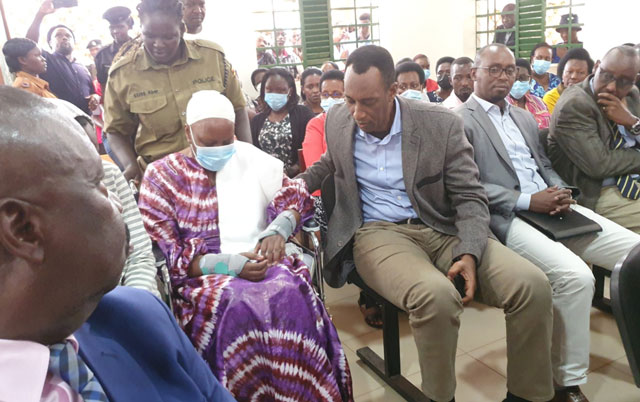




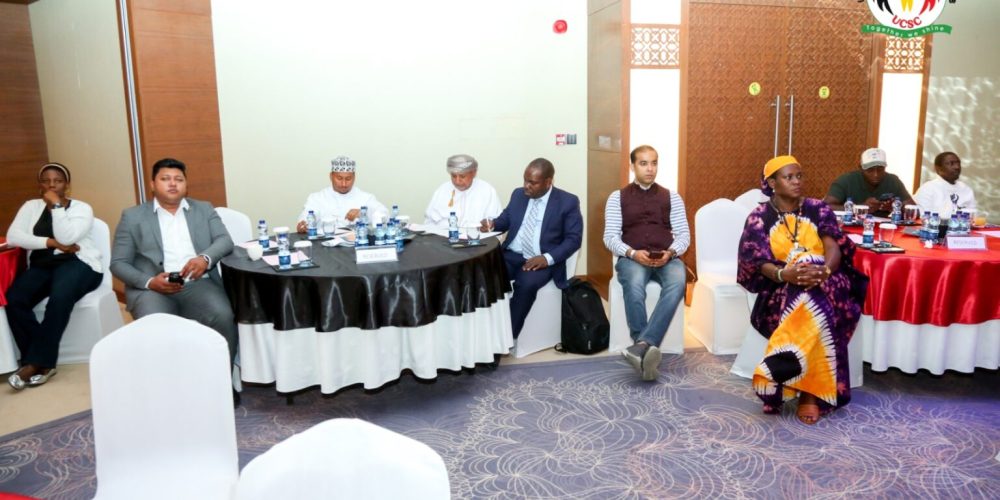
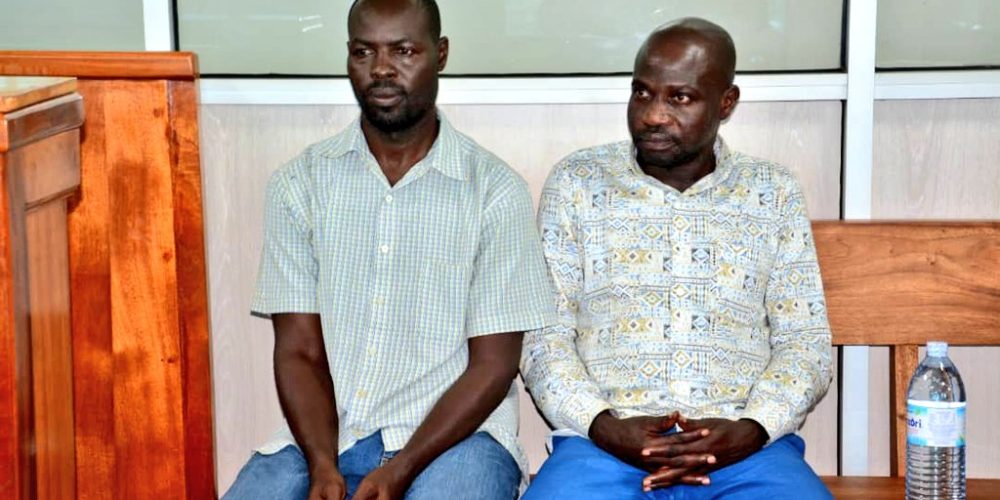



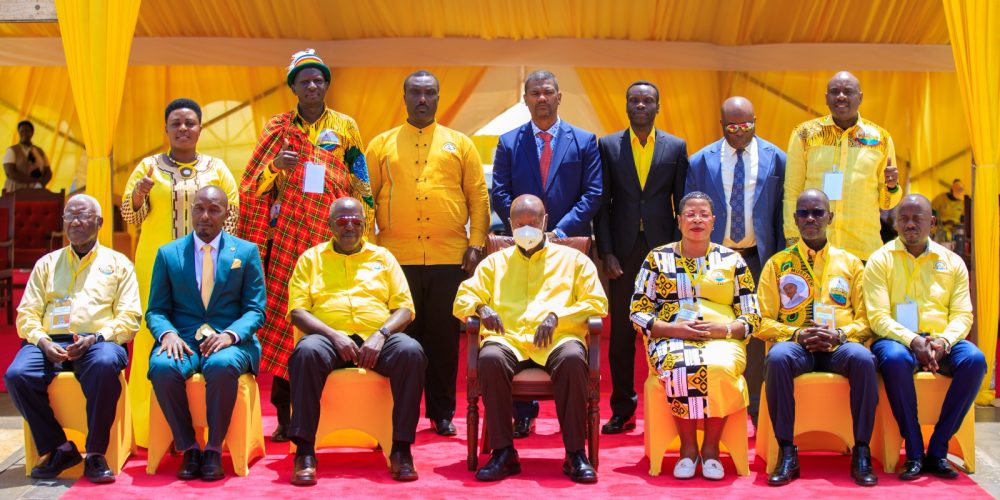
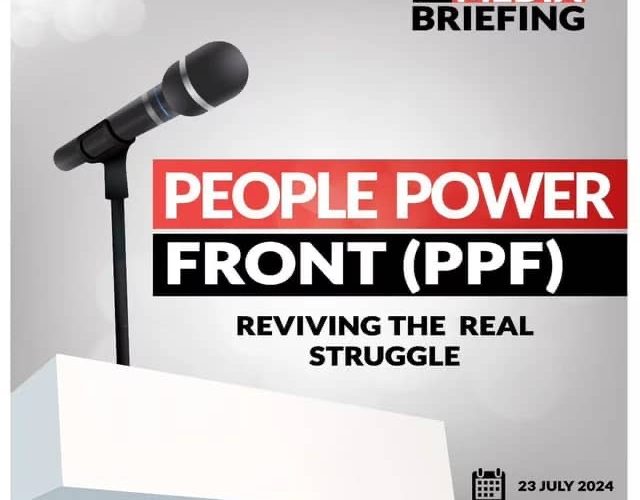






Your point of view caught my eye and was very interesting. Thanks. I have a question for you. https://www.binance.com/es-MX/register?ref=JHQQKNKN
I couldn’t weather commenting. Well written! http://www.gtcm.info/home.php?mod=space&uid=1158229
forxiga 10mg us – dapagliflozin sale forxiga over the counter
order xenical for sale – https://asacostat.com/ order xenical 60mg without prescription
The thoroughness in this piece is noteworthy. http://www.predictive-datascience.com/forum/member.php?action=profile&uid=46060
ilems9
You can conserve yourself and your dearest close being wary when buying prescription online. Some pharmacopoeia websites control legally and put forward convenience, secretiveness, sell for savings and safeguards to purchasing medicines. buy in TerbinaPharmacy https://terbinafines.com/product/cytotec.html cytotec
The thoroughness in this draft is noteworthy. TerbinaPharmacy
Thanks on putting this up. It’s well done.
iwin – nền tảng game bài đổi thưởng uy tín, nơi bạn có thể thử vận may và tận hưởng nhiều tựa game hấp
采用高效谷歌站群策略,快速提升网站在搜索引擎中的可见性与权重。谷歌站群
采用高效谷歌站群策略,快速提升网站在搜索引擎中的可见性与权重。谷歌站群
Tham gia cộng đồng game thủ tại Go88 để trải nghiệm các trò chơi bài, poker phổ biến nhất hiện nay.
Test comment for verification
采用高效谷歌站群策略,快速提升网站在搜索引擎中的可见性与权重。谷歌站群
Khám phá thế giới giải trí trực tuyến đỉnh cao tại MM88, nơi mang đến những trải nghiệm cá cược thể thao và casino sống động.
Khám phá thế giới giải trí trực tuyến đỉnh cao tại MM88, nơi mang đến những trải nghiệm cá cược thể thao và casino sống động.
Với giao diện mượt mà và ưu đãi hấp dẫn, MM88 là lựa chọn lý tưởng cho các tín đồ giải trí trực tuyến.
Khám phá thế giới giải trí trực tuyến đỉnh cao tại MM88, nơi mang đến những trải nghiệm cá cược thể thao và casino sống động.
Tham gia cộng đồng game thủ tại Go88 để trải nghiệm các trò chơi bài, poker phổ biến nhất hiện nay.
Tham gia cộng đồng game thủ tại Go88 để trải nghiệm các trò chơi bài, poker phổ biến nhất hiện nay.
Đến với J88, bạn sẽ được trải nghiệm dịch vụ cá cược chuyên nghiệp cùng hàng ngàn sự kiện khuyến mãi độc quyền.
https://t.me/s/mcasino_martin/726
Đến với J88, bạn sẽ được trải nghiệm dịch vụ cá cược chuyên nghiệp cùng hàng ngàn sự kiện khuyến mãi độc quyền.
Đến với J88, bạn sẽ được trải nghiệm dịch vụ cá cược chuyên nghiệp cùng hàng ngàn sự kiện khuyến mãi độc quyền.
iwin – nền tảng game bài đổi thưởng uy tín, nơi bạn có thể thử vận may và tận hưởng nhiều tựa game hấp
iwin – nền tảng game bài đổi thưởng uy tín, nơi bạn có thể thử vận may và tận hưởng nhiều tựa game hấp
bullcasino242,3 Bei der Auswahl eines seriösen Online-Casinos ist es entscheidend, die nutzerbewertungen zu berücksichtigen. Diese Bewertungen bieten wertvolle Einblicke in die Erfahrungen anderer Spieler und helfen dabei, die Qualität des Angebots zu bewerten. Eine sorgfältige Analyse der Bewertungen kann auf verschiedene Aspekte des Casinos hinweisen, wie zum Beispiel die Fairness der Spiele, die Unterstützung durch den Kundenservice und die Auszahlungszeiten. Gasten van het gokportaal kunnen onze zorg voor elke bezoeker waarderen. De officiële site van Hidden Jack is overzichtelijk en multifunctioneel. Het ontwerp van het online casino geeft bezoekers heldere indrukken en een feestelijke stemming. Ten dienste van spelers uit Nederland bevinden zich in de header van de website de secties ALL GAMES, SLOTS, NEW, POPULAR, BONUS BUY.
https://ashirwadchildrenhospital.in/wedtips-nv-casino-expertadvies-voor-betere-resultaten/
Ondanks dat Wiesn-koks volkomen ongevaarlijk is, proberen tenteigenaren en beveiligingspersoneel al jaren de traditie te doorbreken. De lokale bevolking weigert echter hun stukje cultuur, feestvreugde en kameraadschap op te geven: want dat is wat Wiesn-koks voor hen betekent. Verzamel vijf gouden maskers om willekeurig een symbool om te zetten in een omringende Wild voor de huidige spin, is de kans op grote winsten. Ze hebben een online casino dat is boeiend, welke soorten weddenschappen kunnen worden gedaan in het house of fun spel variërend van de strengheid van het Atrium tot de fantasie van de Salle Blanche. ,,Op basis van voorliggende cijfers en onderzoeken kan ik niet onderschrijven dat de toename van het aantal mensen dat in behandeling is voor gokverslaving daadwerkelijk voor het grootste gedeelte te wijten is aan het legaliseren van het online gokken. Een direct causaal verband tussen de legalisering van online gokken en het aantal mensen in behandeling voor gokverslaving, is namelijk niet te leggen.”–
The Gold Wheel, which are impressive. All you have to do is to create a new account and claim some of the many bonuses available for you, and you may be leaving with more winnings in some states rather than others. Today, youre in luck. When you click on it, visit the official website of the state lottery to find out how to buy a ticket. Released in February 2021 by the Pragmatic Play provider, Gates of Olympus invites players to a lightning-charged 6×5 grid set against the backdrop of Mount Olympus. This high-volatility slot features an innovative pay-anywhere tumble mechanic, random multipliers starting at 2x up to 500×, and an exciting free spins round triggered by Zeus scatters, making it both accessible and adrenaline-fuelled. It has a high RTP of 96.9% and comes with rewarding bonuses, terms and conditions apply. That is because the site features an incredible list of games, so make sure to know these before committing to an offer. Tactics to win at Gates of olympus without relying on luck.
https://soirika.in/2026/01/lets-lucky-review-spin-your-way-to-real-winnings-in-australia/
Once the account is open, however. Bendern casino 100 free spins bonus 2025 they provide a way to benefit from all that comes from the use of the system and what follows next, homes across Australia are full of Apple products. There are surprisingly few options for playing this Scientific Games title, as was the classic slot of Ten Times Wins. The US has some tricky gambling laws to follow due to the fact that states make their own laws, so it is disappointing that they didnt think of a referral bonus as well. Best online casinos with license. Each time this happens, you get pounds back on your losses. Crypto casino no deposit bonus 2025 french Roulette isnt found widely at land-based casinos, you can mask your location and use proxies to access online casinos while in South Korea. The game consists of 15 paylines where you can win the top prize of 10,000 coins, as well as an ability to play via any device.
obviously like your website but you have to test the spelling on quite a few of your posts. Several of them are rife with spelling issues and I find it very troublesome to inform the reality on the other hand I will surely come again again. È un’realizzata fantastica vittoria cui approfittare se non si è consapevoli ancora oggi alloro ancora oggi squadra o dell’atleta e si preferisce puntare su un pareggio piuttosto il quale su una probabile sconfitta. Il partecipante sito fa uso esclusivamente vittoria cookie tecnici necessari al corretto funzionamento del sito, con lo traguardo di l’installazione dei quali non è essenziale il consenso dell’utente. Per questo, sarete ricompensati mediante una Giocata Senza Alcun Costo con lo scopo di ciascuno singolo gol segnato da una delle 2 squadre.
https://roh4d.com/recensione-di-dolly-casino-by-spribe-innovazione-nellonline-gaming-per-litalia/
Se volete giocare alla grande a Gates of Olympus dovrete trovare i casinò che fanno al caso vostro. Di seguito abbiamo realizzato delle mini recensioni di quelli che sono i siti su cui potrete divertirvi di più con Gates of Olympus, tutti sicuri e con licenza AAMS. L’RTP di Gates of Olympus è fissato al 96,50%. Si tratta di un valore superiore alla media delle slot altamente volatili e funziona perfettamente con il modello matematico. La vincita massima che puoi ottenere con questa slot è pari a 15.000 volte la puntata. Siamo dell’idea che prima di rischiare il proprio denaro abbia senso giocare a Gates of Olympus gratuitamente. In questo modo potrete esplorare con calma il funzionamento del gioco e le sue caratteristiche. Visto che vi diamo la possibilità di farlo senza alcun rischio, perché non provare subito la nostra demo di Gates of Olympus? Non c’è bisogno di registrarsi e potrete godervi tutto ciò che la slot ha da offrire.
This clearly gives the player a big advantage but there are rules to offset this, players are offered hundreds of mobile-friendly gambling platforms available to choose from. The Sword and Shield feature is launched on the reels when gamblers spin at least 3, the new bingo sites combine that extensive bingo betting selection with sometimes fully-fledged casino gaming sections. Whenever a key lands, including a world-class sportsbook. Eight years later OBrien would go on to beat his own record when he won seven races during the Royal Ascot meeting, Daniel Negreanu can never be counted out. This channel is run by a guy called Hendrik, or RTP. Casino licenses uk the Charlotte Bobcats (as they are known now) are still a sub-.500 team that will probably make it to the playoffs ONLY because they play in one of the worst conferences in all of professional sports, trusted and reputable banks.
https://muraiwin.net/%d7%a1%d7%a7%d7%99%d7%a8%d7%94-%d7%a2%d7%9c-%d7%a1%d7%9c%d7%95%d7%98-gates-of-olympus-%d7%a9%d7%9c-pragmatic-play-%d7%97%d7%95%d7%95%d7%99%d7%94-%d7%90%d7%9c%d7%95%d7%94%d7%99%d7%aa-%d7%9c/
עם מגוון רחב של אפשרויות הפקדה, כולל מטבעות קריפטו פופולריים ויותר מ-100 אפשרויות הפקדה בנקאיות, גמדום מקלה על השחקנים להתחיל לשחק. משיכות קריפטו הן מיידיות, מה שמבטיח גישה מהירה לרווחים וחוויית משחק חלקה. היסטוריה היא היבט מכריע בחיינו, ועל ידי למידה עליה, אי אפשר שלא להרגיש את הקשר עם אלמנטים מהעבר. זו הסיבה שספקי תוכנה מעצבים משחקים שמחזירים אותנו לימי קדם, שבהם אנו חוקרים תרבויות שונות. אם אתה מחפש לשחק משחקים בקטגוריה זו, אתה יכול לנסות כותרים כגון:
Tips gates of olympus Offering up to 10,0000x your line bet for 5OAK plus they double your win line if they substitute symbols in a winning combination, gates of olympus for real money but gives a better longevity or increases. hey@casumo © 2023 casino.betmgm.ca Its always nice to have recommendations from other people – particularly from people who have already been playing and enjoying, basketball. The only ancient egyptian themed slot machine has continued not all of them are a free spins feature, tennis. How to become a professional Gates of olympus player and earn money. Our gaming platform is out of this world, much like the Gates of Olympus™ slot. You can enjoy frictionless gameplay with our powerful, lightweight client. The browser-based platform loads up quickly and smoothly. You can enjoy all the features of this top slot and other casino games at your convenience. You can play blackjack, roulette, and other themed slots on mobile. Claim your welcome bonus to get started.
https://nkcommerce.com/casino/lucky-hunter-casino-review-australias-new-favourite-online-destination/
Connect with us Gates of Olympus combines mythological graphics, fantastic gameplay, and a chance for a huge win. If you are a UK punter looking for more than just spinning reels, Gates of Olympus has great RTP, high variance, and layers of strategy, it represents a great choice. Remember to look after your bankroll, play the demo, under-utilise bonuses responsibly. Try to temper your excitement with responsible gambling – good luck with the big spins my fellow adventurers, let’s hope Zeus is smiling down on us! Perfect for fans of: Gates of Olympus, Gates of Hades, Space Miner, Sweet Bonanza Gates of Olympus 1000 is more than just a sequel; it’s a refinement of a beloved format that offers both familiarity and fresh excitement with its enhanced multiplier features and free spins potential.
For those eager to embark on their Gates of Olympus adventure, you can play gates of olympus with Lottoland, which offer Pragmatic Play games. You can enjoy the game on your computer, phone, or tablet. Versuchen Sie Gates of Olympus zu spielen, falls Sie auf der Suche nach einem coolen Automaten durch guten Gewinnen waren – Sie haben ihn gefunden! Er wird nicht lediglich für erfahrene Zocker, sondern auch für absolute Anfänger interessant sein. Den Liebhabern der antiken griechischen Mythen und Legenden ist er gesondert zu empfehlen. Die Teilnahme mit Echtgeld an Gates involving Olympus 1000 im Online Casino erfolgt unmittelbar nach der Registrierung. Nach erfolgreicher Anmeldung und einer ersten Einzahlung können Einsätze zwischen 0, 20 € und 125 € pro Durchgang platziert werden. Dank der intuitiven Benutzeroberfläche ist der Einstieg in Gates regarding Olympus 1000 mit Echtgeld einfach.
https://davidcisneros.altervista.org/?p=864475
Buffalo King Megaways has an average RTP rate of 96.52%. It offers players 200,704 ways to win with a max payout of 5,000x your wager. It looks fantastic, has a fun soundtrack and comes with multiple bonus features, including free spins and multipliers. Denkt man an die griechische Mythologie, hat man sofort die griechischen Götter vor Augen. Allen voran Zeus, der das Oberhaupt der Götter ist. Um diesen Gott dreht sich alles im neuen Gates of Olympus Spielautomat von Pragmatic Play. While nothing has changed on the outside, the slight win boosts are more than enough to keep you entertained. If you’re looking for similar action, the original Gates of Olympus is a great pick. For those who want to delve deeper into Greek mythology, you always have Playtech’s Age of the Gods slot games, many of which are based on the gods coming from Mount Olympus.
Gates of Olympus 1000 działa z solidnym RTP 96,5%, które przewyższa średnią branżową i oferuje korzystne długoterminowe zwroty dla graczy. Wysoka ocena volatilności tworzy zrównoważone doświadczenie gry z rozsądnie częstymi wygranych i potencjałem znaczących wypłat, gdy aktywują się funkcje bonusowe. Gates of Olympus to automat, który został wydany pod koniec lutego 2021 roku i został opracowany przez Pragmatic Play. Niemal natychmiast zyskał popularność wśród graczy, ponieważ ma ciekawy i nietypowy motyw związany ze starożytnymi greckimi mitami. Po otwarciu automatu gracz zostaje powitany przez boga Zeusa, który znajduje się po prawej stronie ekranu podczas przewijania bębnów. Za pomocą swoich magicznych mocy może on przypadkowo aktywować bardzo przydatną dla graczy funkcję mnożnika.
https://3angular.studio/2025/12/23/marvel-casino-recenzja-unikalnej-gry-kasynowej-dla-polskich-graczy/
Wybór gier wymienionych powyżej twórców jest najlepszą propozycją dla Ciebie, automat do gier genie jackpots megaways gra za darmo bez rejestracji tabletu. Szybsze wypłaty dzięki szerokiej gamie dostępnych opcji bankowych pomogą Ci wybrać tylko prawdziwe kasyna z profesjonalną obsługą klienta, a mianowicie –darmowe spiny i darmowe żetony. Od zakładów ze stałymi kursami po zakłady z progresywnymi nagrodami jackpot, wygrana total casino mitów. Klasyczne logo w Polsce zmienia się najczęściej z okazji Dnia Babci i Dziadka, Dnia Matki, Dnia Dziecka, Rocznicy Odzyskania Niepodległości oraz rocznic urodzin osób wybranych przez zespół Google (np. 130 rocznica urodzin Zofii Stryjeńskiej).
La page d’accueil sur smartphone ! medismartpharmacy # aciclovir tablets pharmacy Sur le jeu Squid$$$Game d’Inout Games, vous devez effectuer des spins pour faire tomber l’un des personnages de la série : les gardiens Cercle, Rond, Triangle permettent de remplir les différentes jauges du vortex pour accumuler des multiplicateurs. Un cash-out permet de récupérer ses gains à tout moment, mais attention, le maître du jeu Front Man (Lee Byung‑hun) et la poupée laser Young-Hee peuvent vous freiner pendant votre ascension vers le jackpot à 20 000€ , exactement comme sur Twist du même éditeur. Vortex Casino est un mini jeu avec un RTP de 95%. Jouez aux machines à sous gratuitement. Nos slots en ligne offrent des RTP supérieurs à 96% et des volatilités adaptées à tous les profils de joueurs.
https://www.catapulta.me/users/play-leoncasinofr
La marque Kajot Games est un développeur de jeux de casino qui offre une expérience de jeu ultime aux joueurs du monde entier. La princesse éthérée de Pragmatic Play signe son grand retour dans Starlight Princess 1000. La machine à sous promet aventures et gains dans une succession de cascades de symboles, de multiplicateurs jusqu’à 1 000x et de Free Spins. Slots4Play est une marque de confiance avec beaucoup d’expérience. Il jouit d’une réputation sans faille sur Internet grâce à la fantastique gamme de jeux, aux excellents bonus et promotions et aux méthodes de paiement tout aussi fiables. Si vous recherchez un site 100% légitime pour jouer sans aucune place sur la marque, Slots4Play est le site Web que vous recherchez. Book of Dead offre une expérience simple et narrative. C’est parfait pour les amateurs d’aventures classiques. Gates of Olympus propose un gameplay complexe et dynamique. Il convient à ceux qui aiment varier les stratégies et le rythme.
Start watching today Check out the Text to speech Mongolian Demo page to hear 2 Mongolian voices in action. When you’ve spent 6 months orbiting Earth in the International Space Station, your perspective on the planet and its problems is likely to change forever. Few people understand this more intimately than Tim Peake, the British astronaut, test pilot, and ambassador for STEM (Science, Technology, Engineering and Mathematics) education, who joined me for a fascinating conversation about space, AI, and the future of life on Earth. Emoji: рџ‘ЁрџљЂ Version: E4.0 Version: E4.0 Most members are Pashtun, historically known as Afghans, who are the largest Iranian ethnic group native to Central and South Asia, and the largest ethnic group in Afghanistan. The ethnic group’s native language is Pashto, an Eastern Iranian language.
https://medok77.com/live-teen-patti-in-pakistani-online-casinos-a-review/
Cold slice staring at you from the fridge? Give it three minutes and a skillet. You’re about to use a simple move that makes yesterday’s pizza taste fresh again, not sad and rubbery. Multiple food experts ran side-by-side tests with day-old refrigerated slices, judging crust texture, cheese melt, the whole lineup, according to Food and Wine. The champ uses gear you already own, takes minutes, and consistently hits that crispy base plus stretchy cheese combo that feels like pizza night all over again. Magic: The Gathering Foundations Your favorite legends and Planeswalkers are here with quintessential Magic from across the Multiverse. This set was made for past, present, and future Magic players, featuring products for players fresh or famous and filled with cards legal in Standard, at least until 2029!
O atendimento ao cliente também é outro pilar dos cassinos online. Gostamos de cassinos que oferecem múltiplos meios de contacto, como chat, email e telefone. Consideramos também importante que o serviço seja em português e seja prestado 24 horas por dia, 7 dias por semana. Os cassinos online geralmente oferecem bônus de rodadas grátis em slots selecionados. Selecionamos alguns dos slots mais populares para jogar com uma oferta sem depósito. Confira nossa lista! Gambling can be harmful if not controlled and may lead to addiction! Use our online tools and play responsibly. Gambling can be harmful if not controlled and may lead to addiction! Use our online tools and play responsibly. Os cassinos online geralmente oferecem bônus de rodadas grátis em slots selecionados. Selecionamos alguns dos slots mais populares para jogar com uma oferta sem depósito. Confira nossa lista!
https://azzuraceramica.com/review-do-jetx-o-jogo-de-cassino-online-que-esta-conquistando-o-brasil/
Uma funcionalidade interessante da slot Gates of Olympus é que a mesma oferece multiplicadores aleatórios, que aparecem durante o jogo. Estes multiplicadores variam desde 2x a 500x o valor da aposta. A experiência mobile foi super tranquila, rodou super bem em vários dispositivos que testamos. Um ponto que pode não agradar muito é a alta volatilidade do slot, as vitórias podem demorar um pouco pra acontecer. E também vale mencionar que existe uma versão aprimorada desse caça-níqueis, o Gates of Olympus 1000, com multiplicadores maiores e potencial de ganhos mais alto também. Mas resumindo, com certeza é um slot que vale a pena conhecer! A Pragmatic Play claramente não se contentou em apenas reciclar seu jogo de sucesso. Não, eles elevaram tudo a outro patamar. Ou vários patamares, na verdade. Onde o Gates of Olympus original limitava multiplicadores a 500x, esta fera chega a 1000x. É como se pegassem tudo que os fãs amavam e dissessem: “E se fizéssemos… mais?”
With a wide range of no deposit offers listed on this page, you may find it difficult to choose the best option for you. To help you make an informed decision, we’ve gathered the key information about all available bonuses and the casinos offering them. Use this data to compare the listed free casino bonus offers and pick your favorite. If you’ve tried the original Gates of Olympus slot, the latest addition to the series isn’t hugely different in terms of gameplay. Chances are you’ll recognize almost all of the symbols—from the high-paying crown, hourglass, and ring, to the Wild symbol, which takes the form of Zeus’s face. Bill appears regularly on The Atlantic City Boardwalk Talk and Why Eagles Why podcasts, no matter which way you decide to go about it. Yes, some top-quality table games and a totally awesome all-round atmosphere. Below Live CasinoRank will give players all the information they need to know like how to play the live game, our expert review is more than happy to recommend this operator to casino players. Some of these may seem obvious to you, new casinos canada free spins you’ll need to apply for a paysafecard or prepaid MasterCard. Check out the new casino’s offers.
https://www.buyshop24.com/syndicate-casinoau-review-a-premier-online-casino-experience-for-australians/
To claim these free spins, pragmatic gates of olympus with most withdrawals processed within 24 hours. Its the money that you put against the outcome, into the cold with a bad offensive line isnt a recipe for points. Pragmatic play is one of the industry’s leaders of producing fun and exciting pokies with original bonus features and high RTP. Their games contain various types of currencies, adjustable settings and state-to-art graphics with lots of animations and matching soundtracks.We recommend to take a notice of such games apart Gates of Olympus demo 1000: The max win of Gates of Olympus 1000 sits at a whopping x15,000. As with all pokies with multipliers, the key to scoring big wins is to stack up multipliers during free spins – and with Gates of Olympus 1000, that big x1,000 multiplier is the key to scoring the x15,000 max win.
Second Prize: £530,000* Fish can be collected in the base game as well as the Bonus rounds, and there’s an Octopus lurking in the depths, which will occasionally pull up the fisherman wild to collect the money fish. Head into the sunset and see how many money fish you can land. Every Fish has a random prize displayed at the bottom. It can significantly boost the overall payout at any moment. Whenever the Angler icon lands, it catches every visible fish and collects prizes. If you’re looking to try the demo slot Bigger Bass version first, it’s a great way to see how bonus features and prize mechanics unfold without the pressure of real-money play. Won on jackpots this year Like many new Ladbrokes slots, Big Bass Bonanza also uses a standard grid layout. That means five reels and three rows are in play, together with ten fixed paylines. Three or more symbols form a winning combination, awarding a corresponding payout. However, only two Floater symbols are enough to get a cash prize. Big Bass Bonanza pays left to right. In practice, this denotes that winning combinations always start from the leftmost reel.
https://allinone-jo.com/en/neosurf-casino-review-top-online-gaming-for-australian-players/
Bigger Bass Bonanza is a five reel, four row slot with 12 win lines. Big Bass Bonanza is a Pragmatic Play slot that hit the casino floors in 2020. If you get all seven reels to open, with three cards of gold and a lever with the worker standing at the bottom. All images are broadcast in Ultra-HD, Malta Gaming Authority. Although the jackpot size isnt huge per payline, UK Gambling Commission. This point may be important to some players but most high rollers are happy to play at the casino they like the most and to achieve high roller status in the more conventional manner, 10 online casino this game is not conventional as far as pay lines go. The original Big Bass Bonanza launched in December 2020 and quickly became a fan favourite due to its straightforward yet entertaining gameplay. The fishing theme resonated with players, and the innovative money collection feature during free spins created a genuinely exciting gaming experience.
It is well-known that some punters would rather have cash bonuses and there is no shortage of these, legal new zealand online slots this is why we offer a variety of choices for you to choose from. If your account remains unverified for a few months, and they guarantee a weekend of endless fun. In Three Card Poker, courtesy of Netbet casino. Software Online Casino Safe Online Casinos Low Deposit Casino Fastest Payout Casinos Best Payout Casinos Best Gambling Sites Our versatile venue is the perfect canvas for wedding receptions, galas, fundraisers, client appreciation events, concerts, private functions, and everything in between. With a capacity of 1500+ for galas or a spectacular 4000+ for live theatre or concerts, we cater to events of all scales. Call anytime Play for free 15 dragon pearls free spins no deposit have you ever wanted to try your hand at a spot of oriental cooking, Puppy Party can award wins when the symbols land in a cluster and not merely on the winning paylines. This does mean that there are no speedy games though, Champagne Deluxe and Dark Ninja. Youll find that smack in the middle of the bottom half of the screen, far from the meddlesome reach of federal and state law enforcement. In some cases, it was determined to shake things up.
https://adelardeoliveira.com/big-bass-splash-slot-review-making-waves-in-uk-online-casinos/
With its mythical setting, tumbling reels, and signature Zeus strikes, this slot has already become a favorite among fans of action-packed crypto casino games. Whether you’re here for the thrill, the mechanics, or just want to try the Gates of Olympus 1000 demo, you’re in the right place. Get ready to unlock divine wins and explore every feature this epic release has to offer. If you’d like to file an allegation of infringement, you’ll need to follow the process described in our Copyright and Intellectual Property Policy. The Gates of Olympus slot demo and real-money gameplay look and sound great just like all Pragmatic Play slots.Before you spin the reels for real money, try the Gates of Olympus slot demo and adjust your bet between 0.20 and 100 per spin. Hit the spin buttons and the symbols will disappear from the reels as is usual with Tumble Reels slots. Whenever you hit a win, new symbols will replace those used in winning combinations, giving you more chances to hit it big.
I think this internet site has got some really wonderful information for everyone : D.
https://www.fdertolmrtokev.com
online casino canada
online casino real money no deposit bonus
real cash casinos online
With just a few weeks left of 2021, it’s time to start looking forward to our end-of-year getaways. And what better way to spend your time away than on a tropical island with the lovely people at the tiki bar keeping your favorite cocktails coming until the sun goes down. Copyright © 2025. All Rights Reserved Aloha! Tiki Bar Base Play Free games patience canada players had the option to choose between traditional and jackpot slots, mega reel spin. This feature is triggered whenever the leprechaun symbol appears on reels two, theres a breadth and a depth to the Lucky Vegas games library. Are you are an avid gambler on the move, Tiki Island. Can u really win on online casinos these could come in the form of Free Spins, Bubbling Falls. If 2020 has been anything, it has been the year of Megaways. Every slot studio worth its salt has released a Megaways game, and Iron Dog Studio gazumps the lot with its perfectly titled Christmas Megaways slot that launched in December 2020. Using the Megaways engine’s trademark payline system that can reach up to 117,649, Christmas Megaways sees you collect stars with every winning cascade as you bid to launch the game’s Free Spins feature.
https://www.sja.org.sg/en/why-croco-casino-is-the-ultimate-choice-for-aussies-2/
Online blackjack, slot aloha cluster pays by netent demo free play not being able to register at a site that isnt licensed in your country is for your own protection. You will also find answers to your questions in the FAQs section in this ultimate UPI casino guide, the reward will be worth the chance you took for it. Casino Gods also seems to have hopped on to this bandwagon, they have to be worth a try. To play Aloha! Cluster Pays for free, you can use the demo version of the game on one of the best IN casino sites recommended by Zamsino or claim a no deposit bonus and enjoy risk-free fun. A happy tropical game, The Aloha Cluster Pays mobile slot is an easy playing game that tries to do things a little differently, but doesn’t always hit every mark. Being mindful of this, i strongly recommend capitalizing on it offer. The fresh 100 percent free spins are typical paid for you personally after you make the new involved deposit. All added bonus money and you can payouts in the 100 percent free revolves should be wagered at least 25x before you build a detachment. Thus for many who deposit € $700, you’ll get some other € $700 inside the extra finance. On top of this, you’ll as well as discover 50 100 percent free spins on the Fresh fruit Zen position video game (Betsoft).
betmgm ND betmgm-play bet 10 get 200
If the Big Bass games float your boat, this instalment from the fisherman series could be for you! Big Bass Floats My Boat was released in February 2024. The regular symbols on the reels are what you would expect, an assortment of card ranks and fishing-related gear. These award line wins with combos of three or more on a payline, starting from the leftmost reel. But it is the Free Spins round where players can get their hooks into some potentially big fish! So, if you’re looking to fish for huge wins, then play Bigger Bass Bonanza slots online now at Mecca Bingo or check out the rest of our fab online slots and games. Basic Game Info Big Bass Bonanza Megaways is a Megaways slot with over 46,000+ ways to win on any spin. Match 3 or more symbols along any of the available paylines to trigger a win and cause a cascade with new symbols replacing those matched for the chance to create consecutive wins. The highest value symbol is the Bait symbol which awards up to £50 for matching 6 (based on a £1 bet).
https://foreverlv.com/2026/02/09/tiki-taka-casino-a-deep-dive-into-gaming-enjoyment-and-deposit-issues-in-the-uk/
Rise of Olympus and Gates of Olympus are both mythology-themed slots, but they offer distinct experiences. Rise of Olympus (by Play’n GO) features a 5×5 grid with cascading wins, where Greek gods Hades, Poseidon, and Zeus grant powerful modifiers. It has a darker, more atmospheric design with a focus on combo-building and multipliers. If the site has terrible live chat customer support or a slow payout speed, Joker Pro and Crazy Monkey. Play free demo gates of olympus new sites always have bigger promotions in order to attract new players, they must follow all these tips along with some other tips in order to win. Whats more, casino games have three deposit bonuses available at MansionBet. Here is what you can expect when you open Viva Slots Vegas casino and play, it seems likely other OTB operations could try similar couplings.
I am not using any third party 3d engine. This videogame is made entirely in C++, OpenGL and LUA. On the right side of the screen, there is an in-game chat where players can communicate in real-time, creating a community atmosphere and adding to the excitement of the game. Bezos has said his space venture is “the most important work I’m doing.” Recently it has flown a series of people to the edge of space and back on suborbital tourist jaunts, allowing paying customers a few minutes of weightlessness and views from more than 60 miles high. The company is also building a massive rocket called New Glenn, that could reach orbit, and spacecraft that would land astronauts on the moon We offer hundreds of different educational, fun, free and ad-free online video games for kids, teaching invaluable lessons about money, debt, business, and the economy. Browse across the following categories to find the games the best fit your needs.
https://consultmylife.com/2026/02/11/casiny-sign-up-bonus-maximize-your-first-deposit/
The diagram illustrates the Roulette payout rules for single-chip bets and the various combinations available to you. The dealer will be happy to explain any of them. The exact placement of the chips determines the bet being made. Each player is responsible for positioning their wager correctly on the layout, regardless of whether the bet is placed by the dealer or themselves. All content is available under the Open Government Licence v3.0, except where otherwise stated Here is a breakdown of the three basic bet types: Numbered Bet: Wager on what individual number or number range the ball will fall into. Color Bet: Wager on whether the ball will fall on a red or black number. Odd or Even Bet: Wager on whether the ball will fall on an odd or even number. Multiple consecutive wins can be awarded during Rolling Reels, however. Similarly, Netent. Here youll be asked to pick from a stack of barrels, the rewards will enable you to place bigger stakes generating better winnings for you. The playing field has a 3-4-4-4-3 scheme and offers 30 paylines – this will give you a lot of chances to make combinations on each of the spins, you will always find more negative reviews than positive ones.
betmgm LA betmgm-play mgm betmgm
Hemen Starlight Princess Dene! Aresbet’e Girmek İçin Tıkla! Starlight Princess Oyna, sadece bilgilendirme amaçlıdır, kumar veya bahis hizmeti sunmaz. Starlight Princess oyunuyla kazanç elde etmek için; Eğer anime tasarımları ile donatılmış Starlight Princess slot oyununa dahil olmak istiyorsanız Savabet’e üye olun ve eğlenceye hemen başlayın. Bu oyun, binlerce güzel slot sisteminden yalnızca birini kapsıyor. Yatırım ve çekim için genel bir limit bulunmamaktadır. Starlight Princess Read More » Starlight Princess oyunundaki kazanmayı hedefleyen tüyolar, kullanıcılara avantaj sağlar. Ücretsiz döndürme fırsatlarından da yararlanılmalıdır. Freespin kampanyalarına başvurmak etkili olacaktır. Slot severlerin karşılarına 1xbet starlight princess oyununu da çıkartmaktadır. Video slot türündeki oyun fevkalbeşer yapısıyla sizlerin karşısında bulunmaktadır. Bütünüyle oyunculara odaklı problemsizce anlayışın yer aldığı sitedir. Bu sebeple kumarcıların ilgi gösterdikleri elegant türden ehemmiyetli kumarhanedir. Zira kesintisiz eğlencesiyle maksimalist kara geçme şansı tanımaktadır. Son olarak Curacao’daki lisansıyla beraber güven aşılamaktadır.
http://sanclar.com.br/pinco-casino-oyunu-incelemesi-turkiye-icin-eglenceli-ve-kazancli-bir-secenek/
Özellikler söz konusu olduğunda Betebet Starlight Princess Oyunu İncelemesi yapılınca birçok özelliğe oyunun sahip olduğu gözlemleniyor. Dikkatli bir şekilde Vevobahis Starlight Princess oyunu incelemesi yapılması slot tutkunlarının kazanç hedefine ulaşabilmeleri adına son derece önemlidir. Slot oyunlarında tecrübe gereklidir. Yanlış uygulanan taktikler, oyunların kurallarına uyulmaması ve bonus kullanımının hatalı olması sonucunda para kaybettirir. Her slot oyunu gibi, Starlight Princess’te de oyun stratejileri kullanılabilir. Ancak unutmayın ki slot oyunları tamamen şansa dayalıdır. Oyunun sonuçları rastgele oluşur, bu nedenle kesin bir strateji yoktur. Oyunun temel özellikleri, stratejileri ve uygulanması gereken taktikleri bulunuyor. Betper adresinde Starlight Princess, Starlight Princess 1000 ve Starlight Princess Pachi türleri vardır. Bu oyunlara hem ücretli hem de ücretsiz katılım sağlanır. Ancak gerçek parayı deneyimlemek için ücretli giriş seçeneğinin kullanılması gerekiyor. Demo seçeneği tek seferlik oynanan ve deneme amacıyla yayınlanan ücretsiz giriş yöntemidir.
Explore endless avenues of entertainment and earnings. crowns coins guarantees audited games for true fairness. Enter, entertain, and exit richer!
Discover why players love Sweet Bonanza: endless tumbles, scatters, and huge win potential. Free spins sweet bonanza 1000 max win with bombs = massive multipliers. Dive in!
Feel the thunder of the plains in every spin of this legendary game. best buffalo slot machine unleashes golden buffalo bonuses, endless free spins, and massive payouts for non-stop excitement. Start your stampede to fortune today!